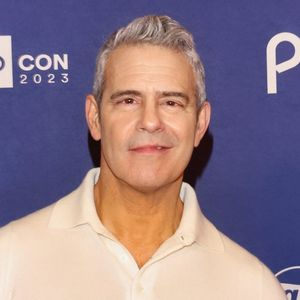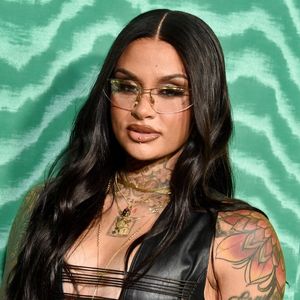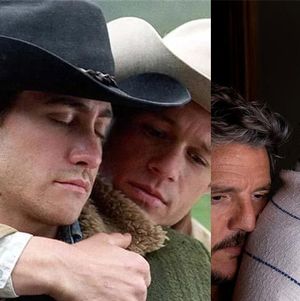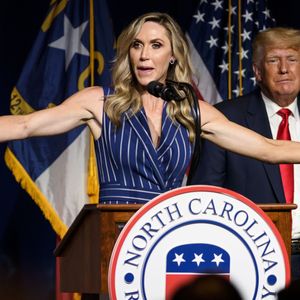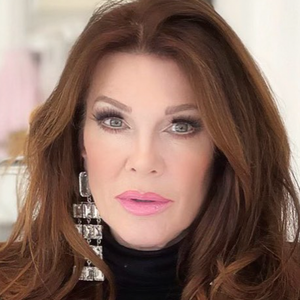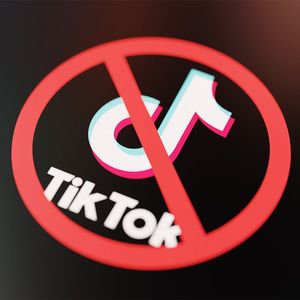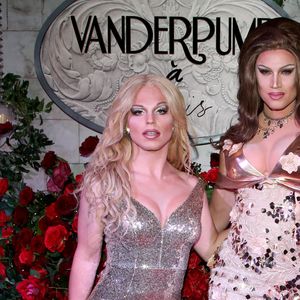
CONTACTStaffCAREER OPPORTUNITIESADVERTISE WITH USPRIVACY POLICYPRIVACY PREFERENCESTERMS OF USELEGAL NOTICE
© 2024 Pride Publishing Inc.
All Rights reserved
All Rights reserved
By continuing to use our site, you agree to our Private Policy and Terms of Use.
How is it that officials at the Human Rights Campaign, the Gay and Lesbian Alliance Against Defamation, the Empire State Pride Agenda, and other prominent gay groups got suckered by a 25-year-old heterosexual evangelical Christian, a man who promised to be their gay-friendly savior but who was simultaneously giving training sessions to antigay groups and calling homosexuality a "sin" on Christian radio? The simple answer: They wanted to believe.
This is a story about yet another slick preacher. But it's also a story about gay people so hungry for acceptance -- and gay groups so eager to tap into the zeitgeist -- that they allowed themselves to be had.
It shouldn't come as a surprise that faith is the issue du jour with gay groups -- as it is everywhere else in George Bush's America -- as they try to bring in religious LGBT people, aggressively reach out to gay-affirming clergy, and genuinely try to change the minds of traditional Christians regarding homosexuality.
HRC, for example, recently launched Out in Scripture, a "devotional resource" for which you can sign up to receive ostensibly gay-affirming Bible verses in your e-mail box weekly. A team of religious scholars consults on the effort, which is coordinated by Harry Knox, head of HRC's year-old Religion and Faith program.
A former pastor and former head of Georgia Equality, that state's LGBT lobbying group, Knox describes himself as "inclusive to a fault." And that certainly seems to be the case regarding Knox's opening his arms to the evangelical charmer in question, Andrew Marin.
It was in 2005 when Marin, a recent graduate of the University of Illinois at Chicago (where he majored in psychology) and a devout Christian, first made contact with gay and lesbian groups through his Chicago-based Marin Foundation, an organization for which he had attained nonprofit status that same year. The Web site for the foundation touted seminars for LGBT people as well as straight evangelicals in order to create an understanding between them -- a "bridge" between the two communities.
Whatever the loftier goals, some former friends and acquaintances of Marin's say he had other hopes for the foundation he named after himself. "He always said he would make a lot of money and his foundation would make him rich," says Melissa Garvey, a former college classmate, talking about the months preceding the foundation's inception. "He even told my mom that."
Christina Wiesmore, former senior convention service manager at the Drake Hotel in Chicago, was Marin's supervisor when he worked at the hotel in sales in 2004. She says that several concerned gay and lesbian coworkers came to her about statements he'd made. "He would just say it's wrong to live 'that lifestyle,'" she recalls. "He didn't agree morally, even though he offered his support."
Garvey, a lesbian, says she befriended Marin in college because both had an interest in sports and had several friends in common. Though she assumed he knew about her through the grapevine, she'd never told him she was a lesbian -- never "came out to him" nor discussed the issue -- precisely because of his evangelical beliefs. That's why she was shocked when, at a friend's urging, she went to the Web site for Marin's new foundation and saw photos of herself on it (ones he'd taken at social gatherings), which he used without her permission. Garvey became concerned particularly because she was not completely out at work and was trying to join the Rotary Club in the conservative suburb where she managed a restaurant at the time. Marin, she charges, publicly outed her for his own purposes.
Emily Webster, also a lesbian, agrees with that assessment. She says her photos were on the site as well, as were another lesbian friend's photos, also without permission.
Garvey and Webster told Marin to take their pictures off his site and severed ties with him. He did, but what remained on the site was a story about his friends "Emily" and "Melissa," whom he described as having "come out" to him, one after the other, shocking his sensibilities and putting him on the path to his current mission. The story is quite detailed, describing where they were when each woman told Marin she was gay. But both women -- and others who know them -- say none of it ever happened.
About the same time, Marin began to gain access to gay groups and gay-affirming churches.
"He approached us about a year ago [August 2005], and one of his strategies was to take folks who were going to his programs and place them in churches," explains Steve Forst, of the Chicago chapter of Dignity, the gay Catholic group. Forst says Marin told the group that "about 60%" of his "students" were Catholic and could be driven to Dignity. But no one from Dignity actually went to the seminars to check them out.
"We were impressed by the idea [of a bridge]," Forst says. "He was a likable guy." Dignity made a $200 donation to Marin -- though in the year since the meeting the avalanche of referrals to Dignity never materialized.
Next stop for Marin appears to have been New York's largest gay group, the Empire State Pride Agenda. As officials there describe it, Marin was brought in by a member of the group's Pride in the Pulpit program, and he impressed the steering committee. He was eventually given a slot to speak at the Pride in the Pulpit conference in Albany, N.Y. But no Pride Agenda official researched Marin's foundation beyond looking at the Web site.
Marin's presentation at the conference was on how Scripture was wrongly used to condemn gays; it was nothing earth-shattering, but it was well-received and certainly didn't betray any of the beliefs he'd previously voiced to others. With the accolades in hand, Marin contacted Gay Men's Health Crisis, the nation's oldest and largest AIDS service organization, which gave him some technical assistance. He called Harry Knox at HRC, who invited him to be among the cohosts of the Faith and Fairness program HRC organized at Gay Games VII, where Knox would tout Marin's work. Knox says he did "due diligence" by looking at Marin's "materials" and his course work. But he also did not attend any of the seminars or speak with the people who went through them.
It was after the appearance of the Reader article -- perhaps the first public exposure Marin received beyond Christian radio -- that alarm bells began to ring. Marin said in the article, "It's theologically sloppy to say [homosexuality is] not a sin."
Both Knox and Creager say they had not previously heard this from Marin. But a quick review of the foundation's Web site shows that Mann had articulated this position several times before on Christian radio programs. (Both Creager and ESPA's spokesperson say that the interviews were newly added to the site and weren't there when they'd inspected the Web site. Knox says he hadn't seen them either.)
Listening to the interviews, it becomes clear that when Marin spoke to gay people he told them what they wanted to hear, but when he spoke to evangelicals he told them what they wanted to hear as well. In several of the interviews Marin even telegraphs to evangelicals that though he doesn't believe "ex-gay" programs are particularly "helpful," since "it's hard to get a foot in the door if you go in talking about hate," he believes that churches should "have [gays] come in and then let the Holy Spirit guide them." It sort of sounds like Reparative Therapy Lite. To one Christian interviewer who challenged Marin on his seeming acceptance of LGBT people, he made his position clear: "There is a difference between affirming and welcoming."
After Melissa Garvey alerted me to the Reader article, I invited Marin to be on my program on Sirius Satellite Radio, where he would not answer a simple question I asked four times: "Do you affirm homosexuality as normal, natural, and healthy?" Marin claimed that as a "bridge" he had to be circumspect and also denied ever saying the foundation would make him rich. He also said that he had the full support of HRC, GLAAD, and GMHC, which he had linked to and listed on his Web site as "sponsors and donors," even though he admitted they had not given him any money.
Both the Reader story and my interview with Marin seemed to send the gay groups spinning into damage control. Several gay Chicagoans I spoke with were outraged to read about HRC giving accolades to a man who was described in the very same story as also giving training sessions to the antigay groups that were organizing to protest at the Gay Games. While Marin signed on to the HRC-sponsored event on gays and religion, he was also signed on to something called the Love and Truth campaign, which was heavily promoted by staunchly antigay organizer Peter LaBarbera and the Illinois Family Institute. Marin had given a training to the groups organizing the action shortly after Chicago evangelical pastor Michael Allen announced it. Knox says he told Marin he shouldn't have sponsored the event, and at Knox's suggestion, Marin didn't go to the Love and Truth campaign press conference -- though he didn't renounce the event.
Marin spent much time himself at the Gay Games events asking LGBT people to participate in a study that he said HRC had sponsored with the Marin Foundation: a survey on gays and faith -- which Knox says HRC was not sponsoring. Marin is not a social scientist, and on my radio program he couldn't name one Ph.D. who had worked on his survey.
Officials at HRC, GLAAD, and GMHC all confirm they'd never given any official endorsement to the Marin Foundation (though Knox said he did allow Marin to link to the group from his Web site), and each group has now contacted Marin to demand he remove them from his list of sponsors. (Pride Agenda also released a statement expressing the group's "distress" at learning more about Marin and broke off any links with him.) Within days the Marin Foundation home page disappeared entirely, replaced with a page stating "this site is temporarily unavailable."
Knox acknowledged to colleagues in a mass e-mail that "the responsibility is mine for this and I accept it with apologies to all concerned." But he maintains that dialogue with evangelicals is "so important" and is worth taking "risks" for.
But this isn't about taking or not taking "risks." It's about doing basic checking and having a hit more skepticism--and a bit less of a will to believe.
Want more breaking equality news & trending entertainment stories?
Check out our NEW 24/7 streaming service: the Advocate Channel!
Download the Advocate Channel App for your mobile phone and your favorite streaming device!
From our Sponsors
Most Popular
Here Are Our 2024 Election Predictions. Will They Come True?
November 07 2023 1:46 PM
Meet all 37 of the queer women in this season's WNBA
April 17 2024 11:24 AM
17 Celebs Who Are Out & Proud of Their Trans & Nonbinary Kids
November 30 2023 10:41 AM
Here Are the 15 Most LGBTQ-Friendly Cities in the U.S.
November 01 2023 5:09 PM
Which State Is the Queerest? These Are the States With the Most LGBTQ+ People
December 11 2023 10:00 AM
These 27 Senate Hearing Room Gay Sex Jokes Are Truly Exquisite
December 17 2023 3:33 PM
10 Cheeky and Homoerotic Photos From Bob Mizer's Nude Films
November 18 2023 10:05 PM
42 Flaming Hot Photos From 2024's Australian Firefighters Calendar
November 10 2023 6:08 PM
These Are the 5 States With the Smallest Percentage of LGBTQ+ People
December 13 2023 9:15 AM
Here are the 15 gayest travel destinations in the world: report
March 26 2024 9:23 AM
Watch Now: The Daily
Trending stories from our video partner Advocate Channel.
For more videos and shows go to advocatechannel.com.
Trending stories from our video partner Advocate Channel.
For more videos and shows go to advocatechannel.com.
Latest Stories
How a lesbian's triumph on the Portland Timbers billboard broke barriers
April 24 2024 4:52 PM
‘Faces of Gun Violence’ exhibit unveiled at inaugural survivors’ summit
April 24 2024 4:46 PM
Trans woman Andrea Doria Dos Passos beaten to death in Miami Beach; arrest made
April 24 2024 4:36 PM
TikTok may be banned in the U.S. after Biden signs new law — Why?
April 24 2024 3:43 PM
Serial killer of gay men in New Orleans released after 46 years in prison
April 24 2024 2:16 PM
The 'largest bi+ event in the world' is happening this year. Here's when and where
April 24 2024 12:42 PM
What happens if Donald Trump is jailed for criminal contempt?
April 24 2024 12:22 PM
Megan Rapinoe, Sue Bird, and more urge NCAA to stand up for trans inclusion
April 24 2024 8:00 AM
Over 90% of trans youth live in states pushing anti-trans legislation: report
April 23 2024 10:08 PM































































